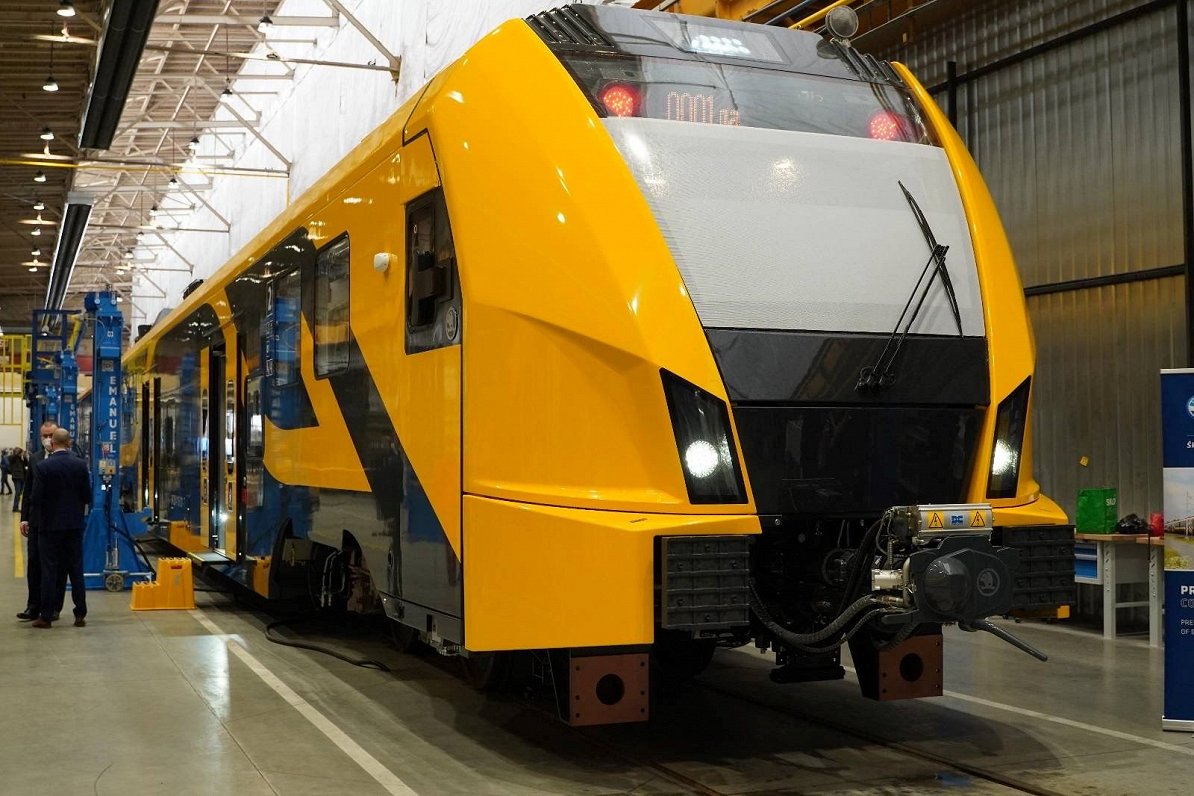Under the new agreement, the manufacturer must deliver and hand over all remaining new electric trains to the customer by the end of this summer. The previous deadline for delivery and handover was the end of 2023.
The agreement is based on an analysis by independent experts of the impact of the war on the fulfilment of the parties' contractual obligations, the two companies said.
The contract for the delivery of 32 new electric trains signed by Pasažieru Vilciens and Škoda Vagonka in mid-2019 foresaw that the first trains would be delivered in the first half of 2022, and by the end of 2023, passenger services would already be operated with all 32 new trains.
Latvia received its first train at the end of June 2022, and passenger services with the new trains started on December 15, 2023. 17 trains have been delivered so far.
"Whether it is inflation, changes in energy prices, rising capital costs, or challenges in global supply chains, war has undeniably affected every sector of the economy and, unfortunately, the presence of geopolitical tensions can still be seen today. The passenger transport sector has also been severely affected by the war, creating unprecedented challenges for the provision and modernization of services of strategic importance to the country, including passenger transport by rail," said Raitis Nešpors, Acting Chairman of the Board of Pasažieru Vilciens.
Martin Bednar, Chairman of the Škoda Vagonka Management Board, added that given the unforeseen challenges posed by the Russian aggression against Ukraine, the timely delivery of the new electric trains was severely affected both in terms of production and logistics.
"As a result of these aspects, we have been forced to assemble the trains twice - the first time at our production facility in Ostrava, where, after certification by independent bodies, the trains are partially dismantled, loaded onto trucks, and transported to Latvia, where they are reassembled at the depot in Riga," he said.
"It is clear to everyone that if it were not for the war, all 32 new electric trains would have been delivered long ago, thoroughly tested, and would now be successfully transporting passengers, but the war is still going on and we have to reckon with its impact for the duration of the contract with Škoda Vagonka. However, despite the challenges, we have agreed with the manufacturer to do our utmost to ensure that the trains are there and that they provide modern, comfortable and, above all, reliable services. This is our priority," said Nešpors.






























